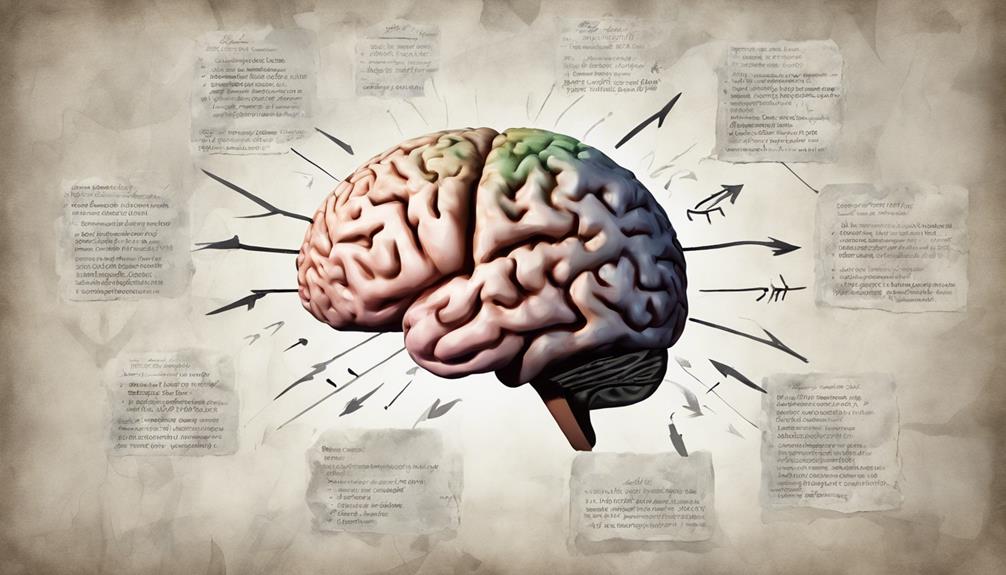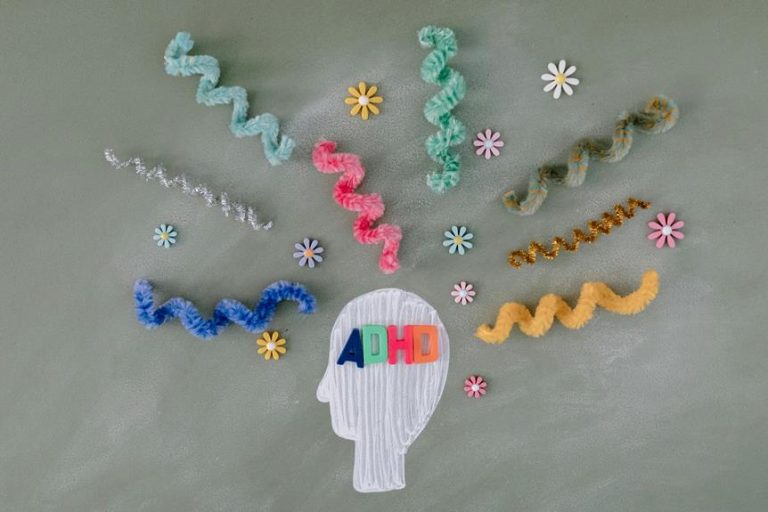Adhd and Spelling
Having ADHD and struggling with spelling can feel like trying to navigate a maze with a blindfold on – challenging and disorienting.
The connection between ADHD symptoms and spelling errors is intricate, but there are effective strategies that can make a difference.
By exploring the impact of ADHD on spelling, common challenges faced, and practical ways to enhance spelling skills, we can uncover valuable insights into how to support individuals in their journey to conquer spelling difficulties associated with ADHD.
Key Takeaways
- Children with ADHD often struggle with spelling, impacting their academic performance.
- Multisensory approaches and memory aids benefit spelling skills in individuals with ADHD.
- Phonological errors and surface dyslexia are common spelling challenges associated with ADHD.
- Executive functions like working memory play a crucial role in addressing spelling difficulties in ADHD.
Impact of ADHD on Spelling

Children with ADHD commonly experience spelling challenges that profoundly impact their academic performance and linguistic development. Studies have consistently shown that children diagnosed with ADHD exhibit higher rates of spelling errors compared to their peers without the disorder.
These spelling difficulties are often linked to phonological issues, affecting word accuracy and the ability to form correct phonetic representations. It's estimated that around 70% of children with ADHD also have a learning disability, with surface dyslexia being a common occurrence among this group. This specific type of dyslexia can hinder the visualization of letter patterns, making it challenging for children with ADHD to accurately spell words.
Additionally, common sight words such as 'who' or 'there' can pose significant difficulties for kids with ADHD, making multisensory instructional approaches particularly beneficial for improving their spelling skills and overall literacy development.
Common Spelling Challenges With ADHD

Having ADHD can present significant challenges when it comes to spelling. Many individuals with ADHD struggle with common words and frequently make spelling errors or omit letters.
Understanding these common spelling challenges is paramount in developing effective strategies to improve spelling skills in individuals with ADHD.
ADHD and Misspelling
Struggling with spelling is a common challenge for individuals with ADHD, often stemming from difficulties in attention, organization, and working memory. Misspelling can be particularly challenging for children with ADHD due to the following reasons:
- Phonological Mistakes: Mixing up similar-sounding letters due to challenges in auditory processing.
- Higher Error Rates: Studies indicate that children with ADHD make more spelling errors compared to their peers.
- Surface Dyslexia: Difficulty visualizing letter patterns and spelling rules impacts accurate spelling.
- Need for Multisensory Instruction: Utilizing multiple senses can aid in improving spelling skills for those with ADHD.
Understanding these challenges is paramount in developing effective strategies to support individuals with ADHD in enhancing their spelling abilities.
Strategies for Spelling
Implementing a variety of multisensory and kinesthetic strategies can greatly enhance spelling proficiency for individuals with ADHD, addressing their common challenges in this area.
ADHD makes working memory a significant obstacle for students, leading to frequent spelling errors such as misspelled words or letter omissions.
To help students with ADHD improve their spelling skills, incorporating music, movement, and color into practice sessions can enhance memory retention and engagement.
Additionally, utilizing technology tools like spell checkers and Text to Speech readers can assist students in identifying and correcting spelling mistakes efficiently.
Strategies to Improve Spelling Skills

When looking to enhance spelling skills for individuals with ADHD, memory aids can be incredibly beneficial.
Consistent practice is key in making spelling an automatic process and reducing errors.
Seeking spelling assistance, whether through technology tools or engaging reading activities, can further support skill development.
Memory Aids for Spelling
Using tactile activities such as magnetic letters or clay can greatly aid individuals with ADHD in enhancing their spelling skills. Memory aids play a critical role in spelling learning, especially for those with ADHD.
Here are four effective strategies to improve spelling skills through memory aids:
- Colored Pencils: Tracing words with different colored pencils can help individuals with ADHD remember spelling patterns more effectively.
- Highlighting Vowels and Consonants: By highlighting vowels and consonants in different colors, individuals can visually distinguish and memorize the structure of words.
- Recording Correct Spelling: Recording and playing back the correct spelling of words while visually looking at them can enhance memory retention.
- Multisensory Techniques: Incorporating sound and touch into spelling practice can assist individuals with ADHD in mastering challenging spellings more efficiently.
Practice Spelling Consistently
To reinforce spelling proficiency in individuals with ADHD, consistent practice is key for enhancing spelling skills and promoting long-term retention. Regular spelling practice not only helps in memorizing correct spellings but also reinforces patterns, leading to fewer spelling mistakes over time.
Engaging in daily spelling exercises is essential for individuals with ADHD as it can gradually increase accuracy and reduce errors. By implementing a structured spelling routine, one can witness a boost in confidence and proficiency. It's vital to practice spelling in various contexts and utilize multisensory techniques to aid in long-term skill development.
Consistent spelling practice is a fundamental strategy for individuals with ADHD to improve spelling skills and minimize spelling mistakes effectively.
Seek Spelling Assistance
In enhancing spelling skills for individuals with ADHD, seeking spelling assistance through the application of multisensory techniques and visual aids is important for promoting memory retention and skill development.
Utilizing techniques like recording and playing back correct spellings can enhance memory retention, while incorporating visual aids such as writing words around shapes improves visual memory for spelling.
Engaging in creative spelling practices involving sound and touch makes learning interactive, and implementing strategies for practicing phonetically irregular words can help overcome spelling challenges.
Color-coded techniques, like tracing words with different colors, draw attention to specific letters and support memory recall effectively. These methods cater to the unique learning needs of children with attention-deficit/hyperactivity disorder, enhancing their spelling abilities in a thorough and engaging manner.
Connection Between ADHD and Working Memory

The connection between ADHD and working memory greatly influences spelling abilities in children with ADHD. Working memory serves as an important cognitive function responsible for temporarily storing and manipulating information. In the context of spelling, working memory plays a key role in retaining the correct sequence of letters, recalling spelling rules, and organizing linguistic information. Children with ADHD often struggle with spelling errors due to difficulties in maintaining and utilizing their working memory effectively.
Research indicates that spelling difficulties in children with ADHD are exacerbated when their working memory capacity is overloaded. The phonological component of working memory, which involves processing and storing auditory information, is particularly relevant to spelling skills. Errors in spelling among children with ADHD are frequently linked to challenges in the phonological aspect of working memory. These errors are mainly phonological in nature, reflecting the close connection between ADHD symptoms and spelling challenges.
Understanding and addressing the impact of working memory deficits on spelling abilities are essential in supporting children with ADHD in improving their spelling skills.
Role of Executive Function in Spelling

The influence of executive function on spelling accuracy becomes evident when thinking about the cognitive processes involved in organizing and sequencing letters within words. Individuals with ADHD may struggle with executive function skills, impacting their spelling abilities.
Here are four key points to think about:
- Working Memory: Executive function plays an important role in working memory, which is essential for holding and manipulating information while spelling words correctly. Difficulties in working memory can lead to spelling errors.
- Cognitive Flexibility: The ability to adapt to changing rules and information is important for accurate spelling. Executive function deficits can hinder cognitive flexibility, making it challenging to adjust spelling patterns accordingly.
- Inhibitory Control: Controlling impulses and focusing attention are key aspects of inhibitory control. Weak inhibitory control in individuals with ADHD can result in difficulties suppressing irrelevant information while spelling.
- Interventions: Targeted interventions aimed at improving executive function skills can enhance spelling performance in individuals with ADHD. By addressing these underlying cognitive processes, spelling accuracy can be considerably improved.
Addressing Handwriting Issues in Spelling

Addressing handwriting challenges in individuals with ADHD requires specialized interventions tailored to improve letter formation and spacing accuracy, essential for enhancing spelling proficiency. Children with ADHD often struggle with handwriting issues such as missing spaces, capitalization errors, and uneven sizing, which can hinder their ability to spell correctly. These challenges may stem from poor letter formation, rotated letters, and spacing inconsistencies in their writing. Additionally, the lower working memory common in children with ADHD can further impact their handwriting, making it difficult to write clearly and organize their thoughts effectively on paper.
To address these difficulties, it's important to focus on enhancing planning and organizational skills. Seeking specialist consultation and tailored instruction can provide the necessary support to improve fundamental skills and tackle handwriting issues effectively in children with ADHD. By implementing strategies that target these specific challenges, individuals with ADHD can develop better handwriting skills, ultimately leading to improved spelling abilities and overall academic performance.
Utilizing Assistive Technology for Spelling

Utilizing assistive technology tools effectively enhances spelling proficiency for individuals with ADHD by providing efficient ways to identify and correct errors. Assistive technology tailored to address spelling challenges can have a major impact on an individual's writing abilities, offering support and encouragement in their academic and professional endeavors.
- Relief: Assistive technology brings relief to individuals with ADHD by easing the burden of constant spell checking, allowing them to focus more on expressing their thoughts rather than worrying about spelling errors.
- Independence: These tools promote independence in learning and writing tasks, empowering individuals with ADHD to take control of their spelling difficulties and work towards improvement.
- Accuracy: Assistive technology guarantees greater accuracy in spelling through features like autocorrect and word prediction, reducing the likelihood of mistakes and enhancing overall writing quality.
- Confidence: By providing reliable support in spelling, assistive technology helps boost confidence in individuals with ADHD, fostering a positive attitude towards writing and communication skills.
Frequently Asked Questions
Can ADHD Affect Spelling?
Yes, ADHD can affect spelling. Executive function, working memory, and attention span play pivotal roles. Challenges in these areas may lead to spelling difficulties. Understanding these impacts can guide tailored interventions for improved spelling skills.
Can ADHD Seem Like Dyslexia?
Yes, attention difficulties can overlap with dyslexia symptoms, leading to challenges in spelling and writing. Understanding learning disabilities is essential; both ADHD and dyslexia share similarities, highlighting the need for tailored strategies and thorough evaluations.
What Causes Poor Spelling Skills?
Learning strategies, cognitive processing, and visual memory are key factors impacting spelling skills. Challenges may arise from ineffective memory retention and difficulty processing rules. Tailored interventions and multisensory instruction can enhance spelling abilities for individuals facing such obstacles.
Why Can My Child Read Well but Not Spell?
I can read well but struggle with spelling due to differences in skills required. Phonics instruction aids in word analysis but memory recall impacts spelling accuracy. Visual processing and attention span affect spelling strategies, highlighting the need for targeted interventions.
Conclusion
After diving deep into the relationship between ADHD and spelling, one thing is clear: understanding the challenges and implementing effective strategies is vital for improving spelling skills in individuals with ADHD.
By addressing the impact of ADHD on working memory, executive function, and handwriting, and utilizing assistive technology, we can support individuals in overcoming spelling difficulties associated with ADHD.
This knowledge empowers us to provide targeted interventions and educational support to help individuals succeed in spelling despite their ADHD.







